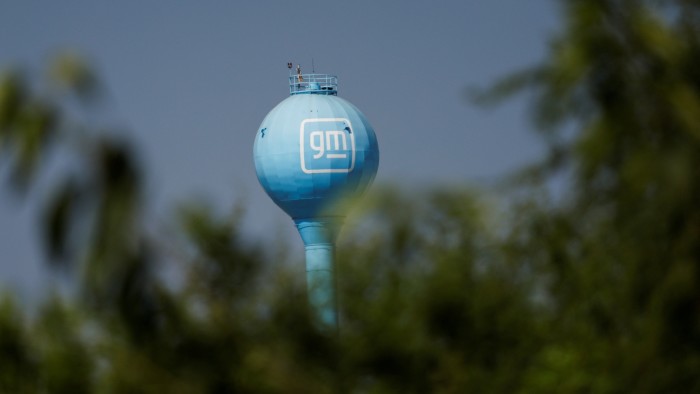Unlock the Editor’s Digest for free
Roula Khalaf, Editor of the FT, selects her favourite stories in this weekly newsletter.
General Motors is losing its golden goose in China. Once a linchpin of its global growth strategy, the country is now the US automaker’s biggest headache.
The company behind Buick and Chevrolet said this week it would take a charge of more than $5bn as it restructures its China business, which is made up of joint ventures. It has its work cut out.
Like other foreign car companies, it is facing multiple challenges in the country. Growth in the Chinese auto market has slowed as consumers cut spending. At the same time, local players — helped by generous subsidies from Beijing — are winning market share. A tit-for-tat trade war resulting from US president-elect Donald Trump’s proposed tariffs on Chinese imports would add to the pain. All this means that, while GM would like to draw a line under its woes in China, it is far from certain that it can do so.
Last year, for the first time since 2009, GM sold fewer vehicles in China than it did in the US. The decline has continued in 2024. The Chinese business has racked up $347mn in losses in the first nine months of the year. Its vehicle unit sales in the country fell nearly 20 per cent in that period, while its market share dropped to 6.8 per cent, from 8.6 per cent a year earlier and nearly 14 per cent in 2018.
Yet GM shares have been unfazed. The stock is up 48 per cent this year and was trading at a nearly three-year high just last month. That is largely because of the strength of its North American business, which accounts for most of its profits. The $10.1bn in net income it reported last year is about 50 per cent more than what it made in 2019 despite the steady decline in its China business.
Investors ignore GM’s China struggles at their peril. Things will only get tougher. While China is the world’s biggest auto market, it is also the most competitive. Improvements in quality, combined with low prices, have allowed homegrown Chinese companies including NIO, Geely and BYD to build a lead in electric vehicles.
GM believes its joint ventures can be restructured without further capital injections and that it can be profitable in China next year. Even if that is the case, it is hard to see GM — or other foreign carmakers that are retrenching to adapt to declining sales — achieving the same level of profitability as in the past. With China’s slowing market already setting off a price war between local brands, the party for foreign carmakers looks over for now.
Read the full article here

